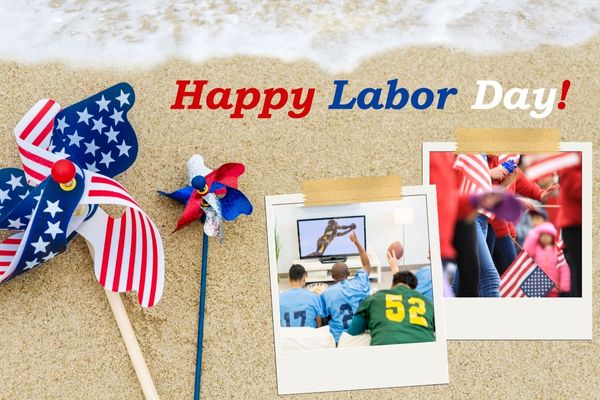

Labor Day is a nationwide US holiday that takes place every year on the first Monday in September in honor of all workers. We explain all the important facts about the origin and traditions of American Labor Day.
The US holiday Labor Day was created to honor American workers and their achievements. Working in the USA was not always regulated or protected by laws. In the late 1800s, at the height of the Industrial Revolution, the average American worked a full 12 hours a day, seven days a week!
Poorer people and US immigrants, in particular, often faced extremely unsafe working conditions. Sufficient fresh air, sanitary facilities, or breaks were often not provided. Even children as young as five to six years of age often worked in industrial factories and under sometimes very difficult conditions.
As the industry increasingly displaced agriculture in the USA, however, workers' unions became more present. They began organizing strikes and demonstrations to protest against poor working conditions and to force employers to renegotiate working hours and wages.

On September 5th, 1882, about 10,000 Central Labor Union workers took unpaid time off to march from City Hall to Union Square in New York City. They could only imagine that this event would make history. Today, the protests are considered the first Labor Day parade in the United States.
In the following years, the idea of a "workers' vacation" celebrated on the first Monday in September increasingly gained ground in other industrial centers in America. Oregon became the first state to make Labor Day a holiday by law in 1887.
By 1894, it had been adopted by 23 other US states. Finally, on June 28th, 1894, President Grover Cleveland signed a law declaring the first Monday in September a nationwide holiday.
Labor Day marks the end of summer and is a day of relaxation for many Americans. In some cities, it is celebrated with parades, picnics, barbecues, fireworks, and other public events.
Many Americans take advantage of the extended weekend to enjoy one last short vacation before the end of summer. Beaches and other destinations are crowded with people enjoying the last days of summer.
For most American students, the new school year begins after Labor Day. That's why many young people take the opportunity to have a Labor Day party as summer vacation comes to an end.
Every year, fans of US sports look forward to Labor Day in particular because on this day, a long period of austerity comes to an end: after more than six months, American Football is finally back again! The teams from the NFL and the college football leagues traditionally play their first regular season games on Labor Day weekend.

Do you want to learn more about typical holidays in the land of opportunity? Then you'll surely enjoy our articles on Thanksgiving, Halloween, Valentine's Day, and Independence Day.